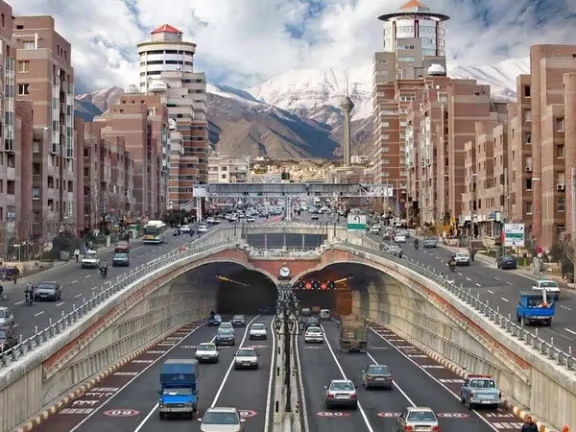Pezeshkian draws ire for suggesting relocation of Iran's capital

Iranian media and experts have criticized President Masoud Pezeshkian for proposing the relocation of the capital to the south, especially given the country's dire economic conditions.

Iranian media and experts have criticized President Masoud Pezeshkian for proposing the relocation of the capital to the south, especially given the country's dire economic conditions.
“Tehran is facing problems that leave us no solution other than the relocation of the [political and economic] center,” he said during a visit to the Revolutionary Guards’ contracting arm, the Khatam ol-Anbiya Headquarters, earlier this month.
Pezeshkian highlighted several pressing issues, including water shortages, land subsidence, and air pollution, all of which have worsened over the years. “The fundamental solution is to relocate the country’s political and economic center,” he stated, suggesting the southern regions, where access to the waters of the Persian Gulf is more convenient, as a viable alternative.
This is not the first time government officials have brought up the need to relocate the capital. Iran has conducted at least six studies on relocating its capital since 1989.
The Parliament passed a law in 2014 that mandated the government to investigate the possibility of relocating the government from Tehran.
The Ministry of Roads and Urban Development was tasked with conducting a feasibility study. The study's findings were to be reviewed by a council comprising the president and relevant ministries. However, the council's sessions were halted by the pandemic in 2020 and have yet to resume.
The ministry’s study had concluded that relocation of the government was not an answer to the capital’s problems which would persist even if civil servants and their families were relocated and suggested administrative decentralization as an alternative.
Most critics agree with Pezeshkian that the Iranian capital is suffering from too many problems including a high risk of a major earthquake. The majority, however, have also reminded him that a highly ambitious project such as relocation requires huge resources that the country is simply unable to afford in the current circumstances.
Iran has yet to make sufficient investments in the oil and gas sectors, as well as other industries in the oil-rich southern regions, where many people live in poverty. This point was highlighted by the conservative Asr-e Iran news website in an article responding to Pezeshkian’s proposal to consider these southern areas as an alternative to Tehran.
“How can we provide the necessary infrastructure for millions in this region? Relocating large factories and establishing the required infrastructure for workers and employees demands significant capital. Additionally, these individuals would need to be persuaded to move to the south,” Asr-e Iran news website told Pezeshkian.
The Entekhab news website emphasized the financial constraints facing Pezeshkian, reminding him that his government is grappling with the budget deficit inherited from his predecessor, Ebrahim Raisi. The government has even had to withdraw funds from the National Development Fund to address its daily challenges.
“Mr. President said we couldn’t ask people to relocate while we remain here ourselves. My question is, where do you want to go?” Gholam-Hossein Karbaschi, a former reformist mayor of the capital, asked Pezeshkian, advocating for administrative decentralization and federalism.
“We have a centralized government, authoritarian in fact, that has concentrated all administrative, political, cultural, and economic decision-making in Tehran,” Karbaschi said.
As an example of such centralization, he pointed out that applications for launching a local newspaper or news website in a remote area of the country must be sent to the Islamic Guidance Ministry in Tehran by the local authorities for a decision.
“Our province governors must have authority if they are like presidents of the province,” Karbaschi said while emphasizing that governors have very little authority and have to let all decisions be taken in Tehran.